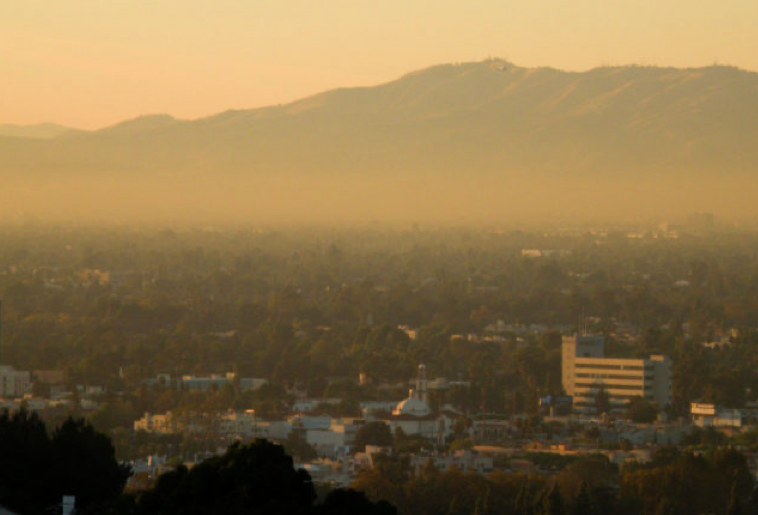CommentsPUBLIC HEALTH POLITICS--On Friday May 8, 2020, the West San Fernando Valley was experiencing excessive heat.
According to the Pierce College Weather Station, we were feeling an air temperature in Woodland Hills of about 90.3 F – 90.8 between 3:00 – 3:30 p.m. that day.
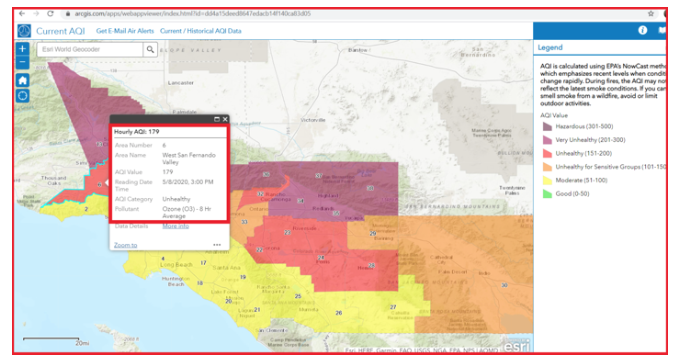
This is the Air Quality for the West San Fernando Valley at that 3:30 p.m. on May 8, 2020. The AQI (Air Quality Index) value for the West San Fernando Valley was 179 – Unhealthy.
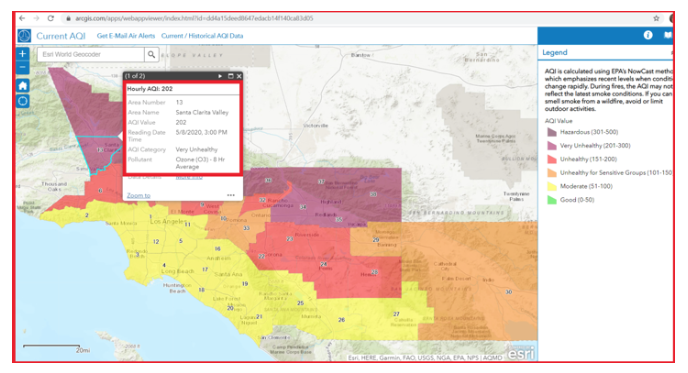
At the same time as the West San Fernando Valley was experiencing Unhealthy Air Quality, the Santa Clarita Valley was experiencing Very Unhealthy Air with an AQI of 202 at 3:30 p.m. May 8, 2020.
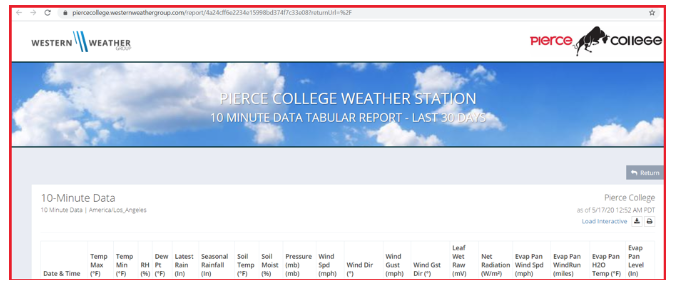
Link to the Pierce College Weather Station 10 Minute Data Tabular Report for Last 30 Days.

10 Minute Data for May 6, 2020 between 3:00 p.m. and 4:30 p.m. – temperature reached 100.6 F at 3:20 p.m.
WHY DO I THINK WE NEED MORE AIR QUALITY MANAGEMENT DISTRICT (AQMD) STATIONS IN LOS ANGELES COUNTY?
- It is my opinion that the data used for a whole District is based upon atmospheric monitoring based on weather conditions at the monitoring station.
- I do not believe that these stations accurately depict the air quality for the whole district.
On May 5, 2020, the AQMD issued the following press release:
“Summer Smog Season Has Begun, Stay Informed of Air Quality Levels DIAMOND BAR – May marks the start of summer ozone season in the Greater Los Angeles region. Hot, stagnant weather during this time of year can increase the formation of ground-level ozone—commonly known to most as smog—and lead to unhealthy air quality throughout the region.
Although Los Angeles saw one of its greatest stretches of clean air in early spring due to rainfall and reduced economic activity that came as a result of the COVID-19 stay-at-home measures, these changes were only temporary. As hotter temperatures return the South Coast Air Quality Management District (South Coast AQMD) wants to remind residents that some areas of the South Coast Air Basin and the Coachella Valley can see unhealthy levels of smog.
“The modest reduction in traffic we are seeing does not mean an end to the air quality effects of smog season,” said Wayne Nastri, Executive Officer of South Coast AQMD. “May is an important time for raising air quality awareness as we move into the hot summer months and see a rise in ozone levels.”
Poor air quality can cause or worsen breathing problems, asthma attacks, lung inflammation and bronchitis. Young children, older adults and those with respiratory issues are at higher risk of having health problems from air pollution.
South Coast AQMD reminds residents to stay informed of air quality levels in their area and adjust their outdoor activities accordingly.”
See the press release above for more information.
A CLOSER LOOK TO THE AQMD DISTRICTS
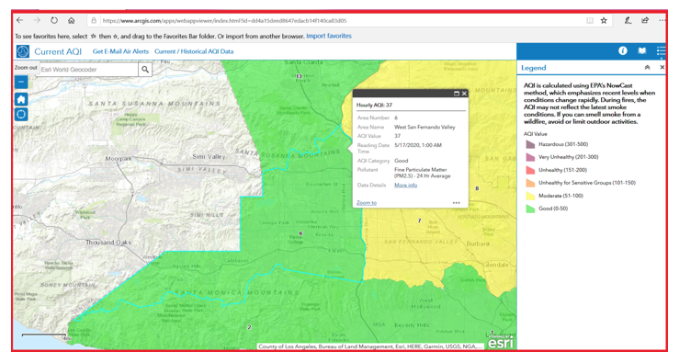
The above image is from the AQMD web link
The West San Fernando Valley is AQMD Monitoring Station 6 which is located in Reseda. As you look at these boundaries. . .
- Wouldn’t you assume the air quality is different in the middle of Reseda than it is in the Santa Monica Mountains at the Ventura County line just north of Leo Carrillo State Park?
- Wouldn’t you assume that the air quality is much worse closer to the 101 and 405 freeways?
- And wouldn’t you assume that the air quality to the north near the Sunshine Canyon Landfill is different than the air quality in Reseda?
- Wouldn’t you assume that the air quality is worse near the Aliso Canyon Oil Fields?
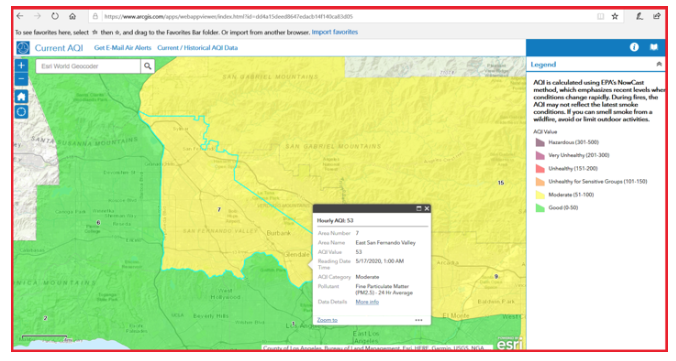
This Map of AQMD District 7 AQMD monitoring area taken from the AQMD current AQI link.
This image is the East San Fernando AQMD Monitoring District. Why are these AQMD districts so “gerrymandered?”
This District includes Burbank and therefore the Bob Hope Airport.
- Why would the air quality south of the 101 freeway in this district be the same as the air quality near the Bob Hope airport?
- Why would the air quality in the Hansen Dam area be the same as in downtown Van Nuys for example?
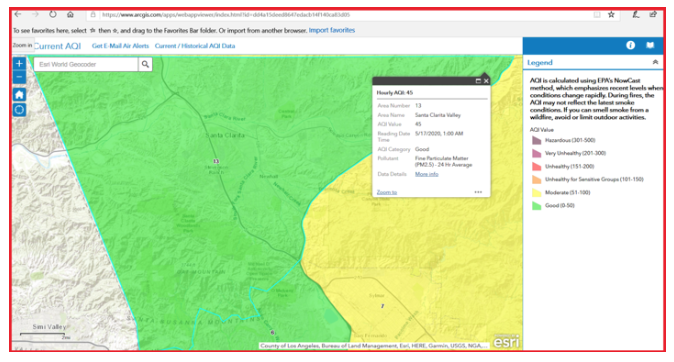
This is AQMD Monitoring Station 13. It is taken from this Current AQI page.
- Why would the air quality in Chatsworth just north of the 118 freeway be the same as that in Santa Clarita? Wouldn’t a more natural boundary for monitoring stations be a straight line along the mountain ridge in the Santa Susana Mountain range that separates the San Fernando Valley from the Santa Clarita Valley?
Why are these air quality monitoring stations so important right now?
- As stated in the recent press release from the Los Angeles County Department of Health, heat, and air quality play important roles to our health. As the air temperatures increase, the Ozone levels also tend to increase.
- With the Coronavirus aka: COVID-19, we are also seeing side effects including harm to the respiratory system in some patients.
- And there is a link between highways and asthma in children.
- Shouldn’t we redraw the AQMD lines throughout the State of California to locate monitors closer to the freeways?
A GOOD PLACE TO START NEW MONITORING
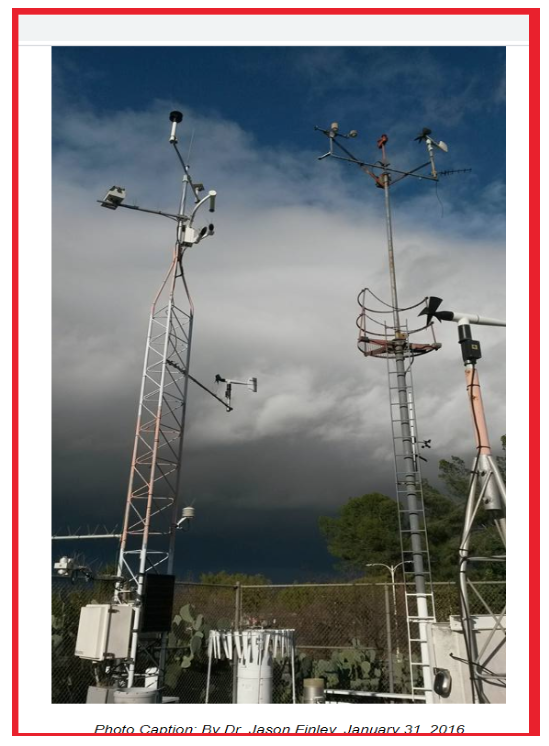
Pierce College has an existing weather station that is 70 years old. It is currently run by Dr. Jason Finley.
A New AQMD Station at Pierce College?
- The AQMD has already been to Pierce College. Wouldn’t it be good when the Woodland Hills air temperatures are often the hottest in the West San Fernando Valley to have an accompanying AQMD station there which would also be used as part of Pierce College’s Math Science curriculum?
- Are there any non-profits that are concerned about air quality that would consider donating to the Pierce College Foundation to fund the AQMD monitoring at Pierce College?
- Could we create a second AQMD location for north of the 118 freeway that would also monitor the air near Aliso Canyon and Sunshine Canyon Landfill as well as that of the 405 freeway in that area?
- Could Valley College set up a similar air monitoring program for their students for the East Valley District to include the area around the 101, 134, and the 170 freeways?
- What about separate monitoring stations near our airports – Van Nuys, Bob Hope, LAX, Santa Monica Airport, etc.?
Please see the stories below from the USC Environmental Health Centers website for supporting information related to health due to our freeways and our airports, etc.
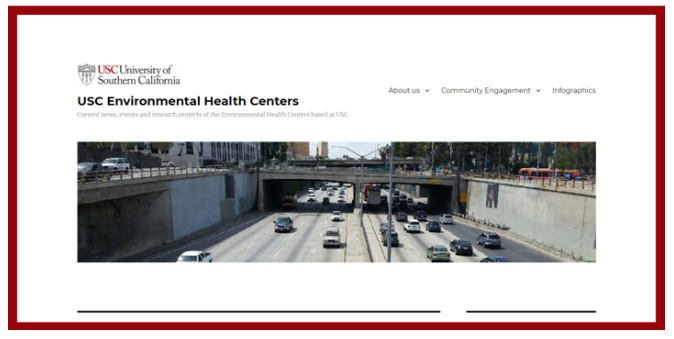
Photo image from USC Environmental Health Centers' website link above.
“Airport pollution linked to acute health effects among people with asthma in Los Angeles.”
This is the link to the California Air Resources Board (CARB) and studies on “Asthma & Air Pollution.”
Conclusion
- Please encourage our Elected Officials to communicate with the California Air Resources Board and the AQMD regarding adding additional air monitoring stations not only to the three AQMD districts that I showed as an example, but also throughout the Los Angeles region.
- Please donate to the Pierce College Weather Station and indicate that you want the funding to go to an AQMD station at that location.
“Pierce College Weather Station Donation Instructions”
Thank you for your concerns about the public health of our community!
(Chris Rowe, a former health care employee who has worked at Northridge Hospital, Tarzana Medical Center, and West Hills Hospital has a B.S. in Health Education. She is a 42-year resident of West Hills. She has written for the Los Angeles Daily News, RonKayeLA.org; OurLA.org; and CityWatch. She has a blog on the USC/ Annenberg Center for Health Journalism website and can be reached at [email protected]) Edited for CityWatch by Linda Abrams.

